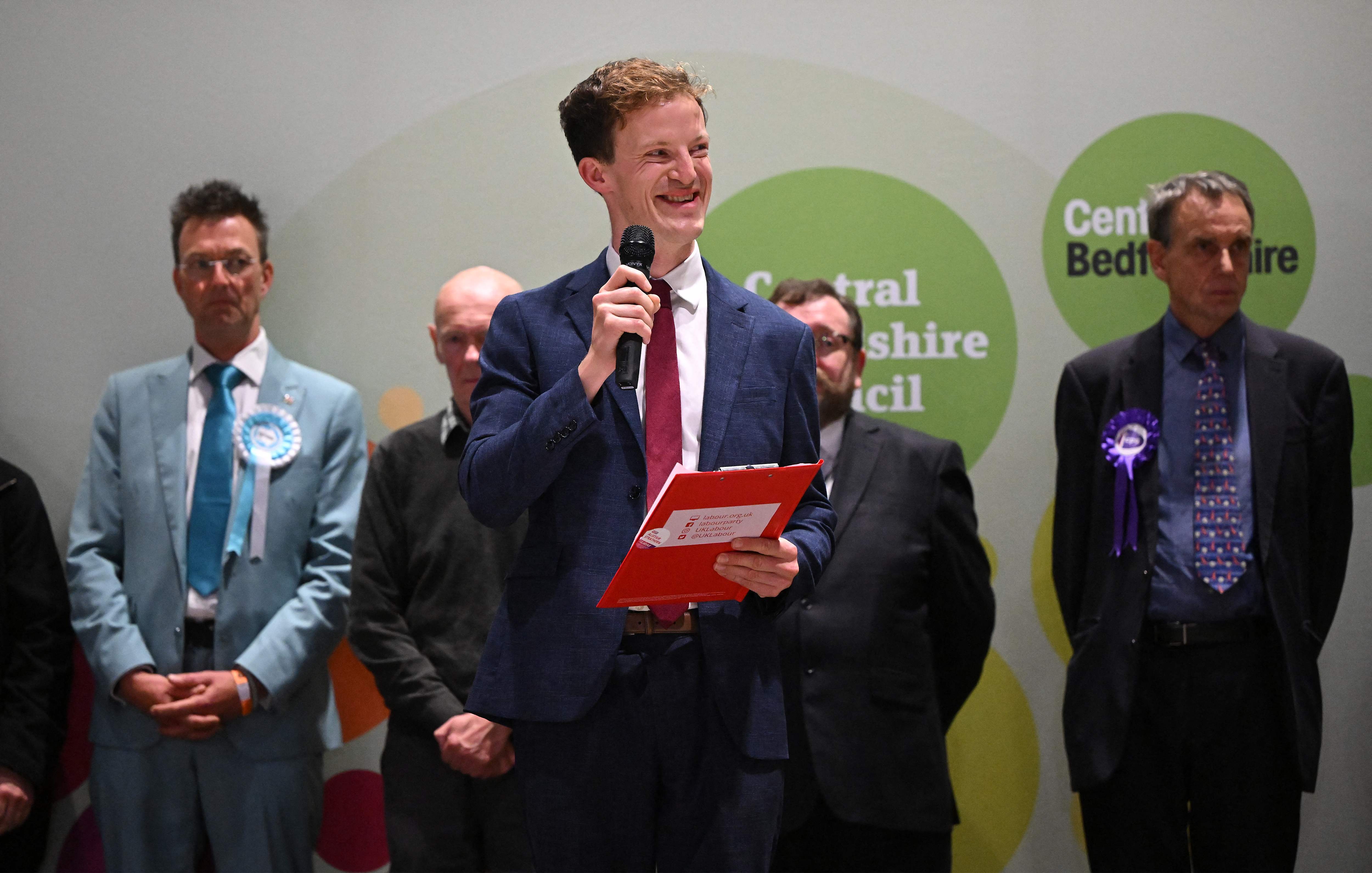By-election result shows Reform UK could cause Tories even more pain
There’s even worse news for the Conservative Party in the juicy detail of this week’s by-election results, says Sean O’Grady


With all the focus on Labour’s historic and record-breaking by-election victories in Mid Bedfordshire and Tamworth, some of the interesting details in the results have been overlooked.
One is the performance of Reform UK – often known as the Reform Party, and formerly the Brexit Party, which in turn carried over much of the Ukip vote. In Tamworth it scored its second-best result in this parliament, saving its deposit, and in both seats the Reform UK vote exceeded Labour’s majority. As its former leader and current party president Nigel Farage thinks aloud about becoming Tory leader by 2026, the machinations on the hard right of British politics are intriguing...
Did Reform UK rob the Tories of two crucial morale-boosting victories?
On the face of it, yes. In both by-elections, the Reform vote was bigger than the Labour majority. In Tamworth, the Reform candidate snatched a highly creditable 1,373 votes (5.2 per cent), against the winning Labour majority of 1,316. In Mid Beds, the equivalent figure was 1,487 (3.7 per cent), set against the majority of 1,192.
Had all of the Reform voters in each seat instead backed the Tory candidate, the headlines would have been very different. If Reform had stood aside, it might have happened. In reality, even a modest victory for the Tories in either seat would still have been a disaster, and a poor omen for the general election, but some honour would have been preserved. There would have been the feeling, however spurious, of a “fightback”, as there was after the slim win in Uxbridge a few weeks ago. Indeed, if the smaller votes for the rump Ukip and various other right-wing micro-parties were thrown in, the Tories might well have snatched triumph from the jaws of Keir Starmer.
Is it as simple as that?
No. Many Reform, Ukip and other fringe-party voters opted for these groups precisely because they are disaffected with the Tories, to the extent that they’d either not vote at all or choose any other option rather than back Rishi Sunak’s lot. Some might even have voted Labour just to teach the Tories a lesson. Some Tory voters hate the current government for ditching Boris Johnson, not cutting taxes, and not reducing migration.
A few Reform voters may have come from Labour, but the old red wall “Brexit effect” on Labour voters is obviously much weaker, now that Brexit has been done and found wanting.
What does Reform UK want?
According to its deputy leader, the excitable Ben Habib, it wants to “destroy the Conservative Party” – a promise he said was “well on the way to being delivered”. Richard Tice, the party leader, has declared himself “delighted” that it twisted the dagger. Farage tweeted: “The huge wins for Labour in the by-elections overnight confirms what I have said before. The Tories are headed for a deserved electoral disaster.”
But doesn’t Farage want to lead the Tories? Why destroy them and then have nothing to lead?
Farage blows hot and cold on the Conservatives, and enjoys winding them up. He’s said his most recent expressions of interest were “in jest”. Still, the reception he was given at the Tory conference in Manchester was warm, and even Sunak said his party was “a broad church”, implying that it could accommodate even Farage.
If there is a kind of informal game plan, it could be that Reform (plus the other fringe parties) will help push the Tories into a historic defeat. After that, the Tory membership – generally more right-wing than their parliamentarians – would seek to rebuild the party as a sort of Ukip Mk II. As Labour’s popularity wanes in office, the attractiveness of their zero-net-migration, small-state, low-tax platform would be irresistible, and Farage would become prime minister at last.
Could it happen?
Who knows, but the Conservative crisis is becoming existential, and politics is more volatile and fractured. Reform UK might intensify the crisis, and lead to some sort of chaotic realignment on the right. In this hypothetical world, the trick for Farage would be to render the Conservative Party so weak as to be vulnerable to a grassroots putsch – but not so decimated that it’s actually dead.
What is the evidence?
Contrary to Farage’s claims, the definitive study of the 2019 general election showed that the Brexit Party’s decision to stand in Labour marginal (Tory target) seats actually reduced Boris Johnson’s majority. It would have been about 130 rather than the actual 80 or so, because Farage’s party uselessly attracted Labour votes that might otherwise have elected Tory MPs in an extra 25 seats.
For example, Yvette Cooper in Pontefract was a prime beneficiary of this accidental side effect of a Brexit Party candidate garnering a very large vote. At the time, it would have been a matter of regret for Farage, Tice, Habib and co; now it is something they fervently hope for. They’re a funny lot.






Join our commenting forum
Join thought-provoking conversations, follow other Independent readers and see their replies
Comments